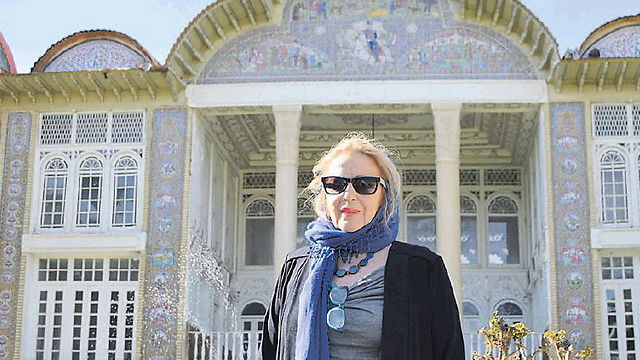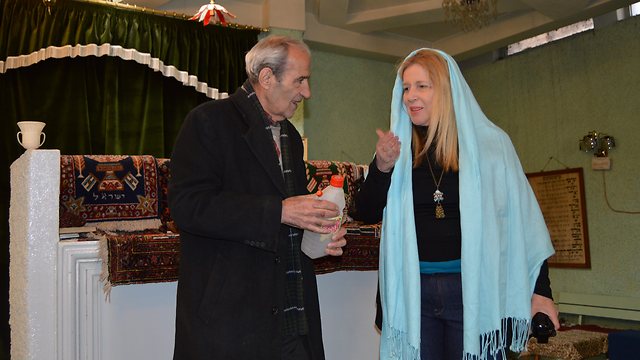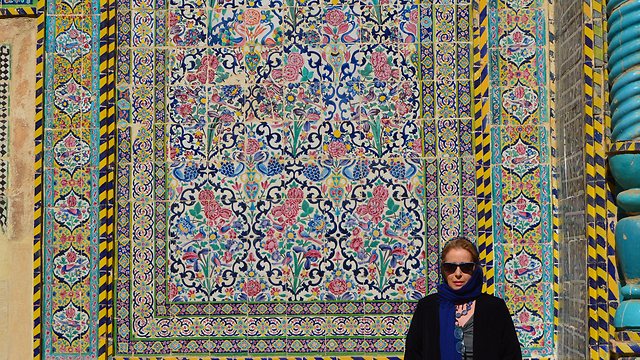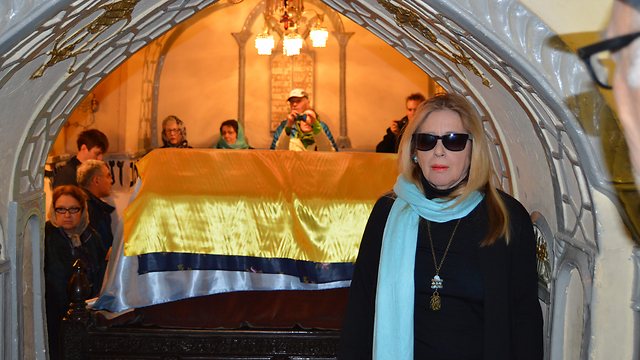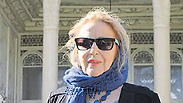
An Israeli visit to Iran causes a stir in Tehran
Iranian MP accuses Ynet's Orly Azoulay of espionage after she visited the Iranian capital and met with the Jews of Isfahan.
Orly Azoulay's recent reports of her visit to Iran have caused quite a stir in the Islamic Republic, which has come out against Ynet's print-publication Yediot Ahronoth's "Zionist emissary who managed to enter the country under the noses of the authorities."
Armed with a visa issued by the Iranian Foreign Ministry, and without making any efforts to conceal her identity, Azoulay went to Iran as part of a delegation organized by the New York Times - and was warmly welcomed by her hosts.
After leaving the country, she described her visit in a report published over the Passover holidays, telling of her time in Tehran, her visits to a synagogue in Isfahan and the tomb of Queen Esther in Hamedan, and various other experiences in the country.
The report has now sparked an outcry in Iran, with the media and social networks filled with discussions on how and why Azoulay received permission to visit the country.
On Tuesday, the Lenziran video website published an extensive report on the subject of the "Zionist journalist," charging that Azoulay's reports are false.
"She has no business here other than espionage," said one Iranian member of parliament who appeared in the Lenziran report. "The question is: where is our intelligence system?"
The report also described how the various Iranian government ministries are trying to blame one another for the "oversight." And according to the report's presenter, "Azoulay's entry into Iran is like a virus entering the human body."
In response to Azoulay's article, the spokesman for the Iranian Ministry of Culture and Islamic Guidance, Hossein Nooshabadi, said she had "entered Iran on an American passport, she didn't have a press card and came in as a tourist, an American resident with an American group – the Foreign Ministry and intelligence services must therefore provide an answer."
According to Dr. Soli Shahvar from Haifa University's Ezri Center for Iran & Persian Gulf Studies, "This whole affair could be exploited by various elements in the war between the factions in the Iranian political system, between the conservatives and the reformists. It could lead, for example, to increased internal monitoring in Iran, more severe oppression and even more serious human rights violations premised on state security."
An Iranian journalist working in the United States for a European news network concurred, adding: "Ahmadinejad and his radical supporters are trying to embarrass Rouhani and his openness to the West, and they sparked this storm in an effort to accuse them of opening the door to an Israeli journalist – it's all internal politics."
In her article, Azoulay described, among other things, her arrival in the Islamic Republic, writing: "The minute or two during which the passport control official at Tehran's Imam Khomeini International Airport scrutinized my foreign passport felt like an eternity. He didn't look me in the eye; he didn't smile; and he didn't say what he was looking for. And then he suddenly stood up and walked over to consult with a second official at another counter.
"A further two officials soon joined the group. One of them approached me and asked if I was born in Israel. I nodded. I couldn't deny it; it says so in my passport. I tightened the hijab covering my hair so as not to give him any reason to arrest me.
"The centrifuges in my mind kept churning, enriching the fears and prejudices I brought from home to the highest level. I thought about Jason Rezaian, the Washington Post correspondent who was arrested in Iran some four months ago and hasn't been seen or heard of since. Several more minutes went by, and then the official ushered me into a nearby room to be fingerprinted.
"A young stern-faced woman pressed my hands firmly onto the ink pad – first my right hand, then the left, and then both together. A few minutes later, one of the officials returned with my passport in hand. He handed it to me and spoke three words in English: 'You can go.'"










